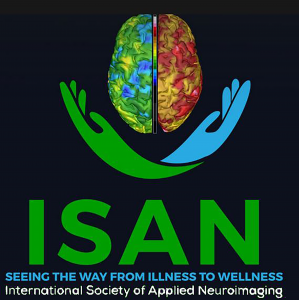Health - Purple Foxy Ladies originally published at Health - Purple Foxy Ladies
WASHINGTON, April 19, 2023 (Newswire.com) - A recently published article in Experimental Biology and Medicine (Volume 248, Issue 3, January, 2023) addresses the mechanisms by which air pollution worsens COVID-19, highlighting the apparent protection offered by a dietary antioxidant, astaxanthin. The study, led by Dr. Ayaho Yamamoto through the Children's Health and Environment Program in the Child Health Research Centre at the University of Queensland (UQ) and Dr. Stephania Cormier from Louisiana State University's (USA) Department of Biological Sciences, and Pennington Biomedical Research Center, reports exposure to air pollution prior to SARS-CoV-2 infection increases the severity of COVID-19.
Epidemiological studies have linked lower air quality to increased incidence and severity of COVID-19; however, how this link operates was previously unclear. To better understand the impacts of air pollution on SARS-CoV-2 infection, Dr. Yamamoto and colleagues obtained cells directly from the inner lining of the nasal cavity from healthy adults aged 24-40 in Australia, grew these cells into a fully differentiated respiratory epithelium and exposed them to particles containing environmentally persistent free radicals (EPFRs), oxidant components of particulate air pollution that are present in substantial numbers on atmospheric particulate matter, prior to SARS-CoV-2 infection. They then quantified viral replication and initial immune responses. A dietary antioxidant, astaxanthin, was also used to pretreat some of the cells to mimic the situation of taking daily supplements.
The study found that exposure of cells to EPFRs increased SARS-CoV-2 viral replication; a decrease in MUC5AC, which produces mucus and protects cells from viral entry; increased secretion of the proinflammatory cytokine TNF-α; and reduced the levels of antioxidant enzymes. Supplementation with astaxanthin inhibited SARS-CoV-2 viral replication by 43%. This correlated with the reduced expression of ACE2, a membrane protein required for SARS-CoV-2 entry and prevented most of the other adverse effects caused by EPFR exposure. These data suggest that oxidant damage to the respiratory epithelium may underly the link between poor air quality and increased COVID-19 severity.
Dr. Yamamoto said, "We have provided the first experimental evidence showing how exposure to poor air quality increases the severity of COVID-19 and suggesting that supplementation with a simple dietary antioxidant, astaxanthin, may prevent this negative impact. These preliminary findings may lead to future clinical studies."
Dr. Cormier noted, "This study was only possible because of the rapid supplemental research support provided by the National Institute of Environmental Health Sciences Superfund Research Program. We were able to leverage strong existing collaboration between the University of Queensland and Louisiana State University. The findings highlight the importance of global collaboration and the potential for simple therapies to be adapted for vulnerable populations."
Dr. Steven R. Goodman, Editor-in-Chief of Experimental Biology and Medicine, said, "This important study by Yamamoto et al provides strong evidence that poor air quality leading to oxidative stress in respiratory epithelium may underlie the association between air pollution and increased prevalence and severity of COVID-19. It further provides evidence that antioxidants can help to mitigate the effects of air pollution on SARS-CoV-2 infection's impact on the respiratory system. This evidence should lead to clinical trials to test the efficacy of oral antioxidants upon COVID-19 severity."
Experimental Biology and Medicine is a global journal dedicated to the publication of interdisciplinary research in the biomedical sciences. The journal was first established in 1903 and is the journal of the Society of Experimental Biology and Medicine. To learn about the benefits of society membership, visit www.sebm.org. If you are interested in publishing in the journal, please visit http://ebm.sagepub.com/.
For more information, please contact [email protected].
Contact Information:Benjamin Zimmer
[email protected]
Original Source: New Study in Experimental Biology and Medicine Highlights the Links Between Air Quality and COVID-19 Severity
Health - Purple Foxy Ladies originally published at Health - Purple Foxy Ladies






